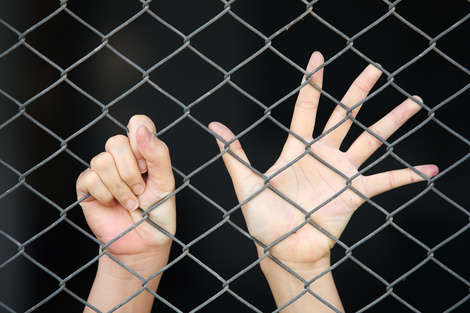From 1st April this year, under the terms of the Modern Slavery Act, UK businesses with a turnover of £36 million or more, are required to make an annual statement, setting out the steps they have taken to stamp out slave and child labour from their supply chains.
This legislation is designed to have a cascading effect on SMEs that fall below the £36 million threshold, to encourage them to ensure that their supply chains are also slavery-free. As larger businesses prepare their statements under the new rule, it seems that UK SMEs are shockingly unaware of this knock-on impact on them, and are unprepared to deal with forced and slave labour issues.
Read: The Modern Slavery Act: what is required of employers?
A report by the Chartered Institute of Procurement & Supply (CIPS) earlier this year revealed that 61 per cent of the surveyed 263 UK businesses with turnovers under the £36 million threshold are unaware of the reporting requirement, let alone its impact on them.
Today, a new report by LexisNexis BIS drills down on the issue, revealing that the global construction industry is most at risk.
The report, called Hidden in Plain Site – Modern Slavery in the Construction Industry, analysed articles from more than 6,000 licensed news sources in more than 100 countries in Europe, the Middle East, North and South America, Africa and Asia between January 2015 and May 2016.
It shows that throughout the global construction industry and its material supply chains, forced labour and other exploitation that constitutes modern slavery are common, concealed and subject to inadequate prevention, policing and prosecution.
It concludes that governments, businesses and the media all have a role to play in combating modern slavery.
The report follows a pledge by new UK Prime Minister Theresa May in July to spend £33 million on global initiatives to tackle modern slavery. She described it as “the great human rights issue of our time”.
According to Mark Dunn, director at LexisNexis Business Insights Solutions, there is a strong risk of forced labour taking place in the construction industry and its supply chains, and given that this industry employs an estimated 7 per cent of the global workforce, this means countless thousands of workers are leading lives of misery and injustice.
“Forced labour needs to move up the global agenda. A wide range of stakeholders – international bodies, governments and the public sector, industry organisations, construction companies, investors, the media and civil society – have roles to play in preventing and avoiding collusion in worker exploitation in the construction industry,” he said.
Case studies in the report include allegations of forced labour being used to build World Cup 2022 stadiums in Qatar, a marine construction project in the USA, and Brazilian workers at an industrial plant in Angola.
Modern slavery isn’t a far-away problem plaguing emerging economies alone. This report highlights gruelling stories of Hungarian migrant workers threatened and beaten to work 20-hour shifts in the UK.
UK’s Independent Anti-Slavery Commissioner, Kevin Hyland OBE explained the construction industry in particular is vulnerable to forced employment and exploitation owing to its high demand for low wage labour.
“We must therefore strive to see a thriving construction industry that values ethical recruitment and fair employment if we ever hope to end this evil trade in human being.”






